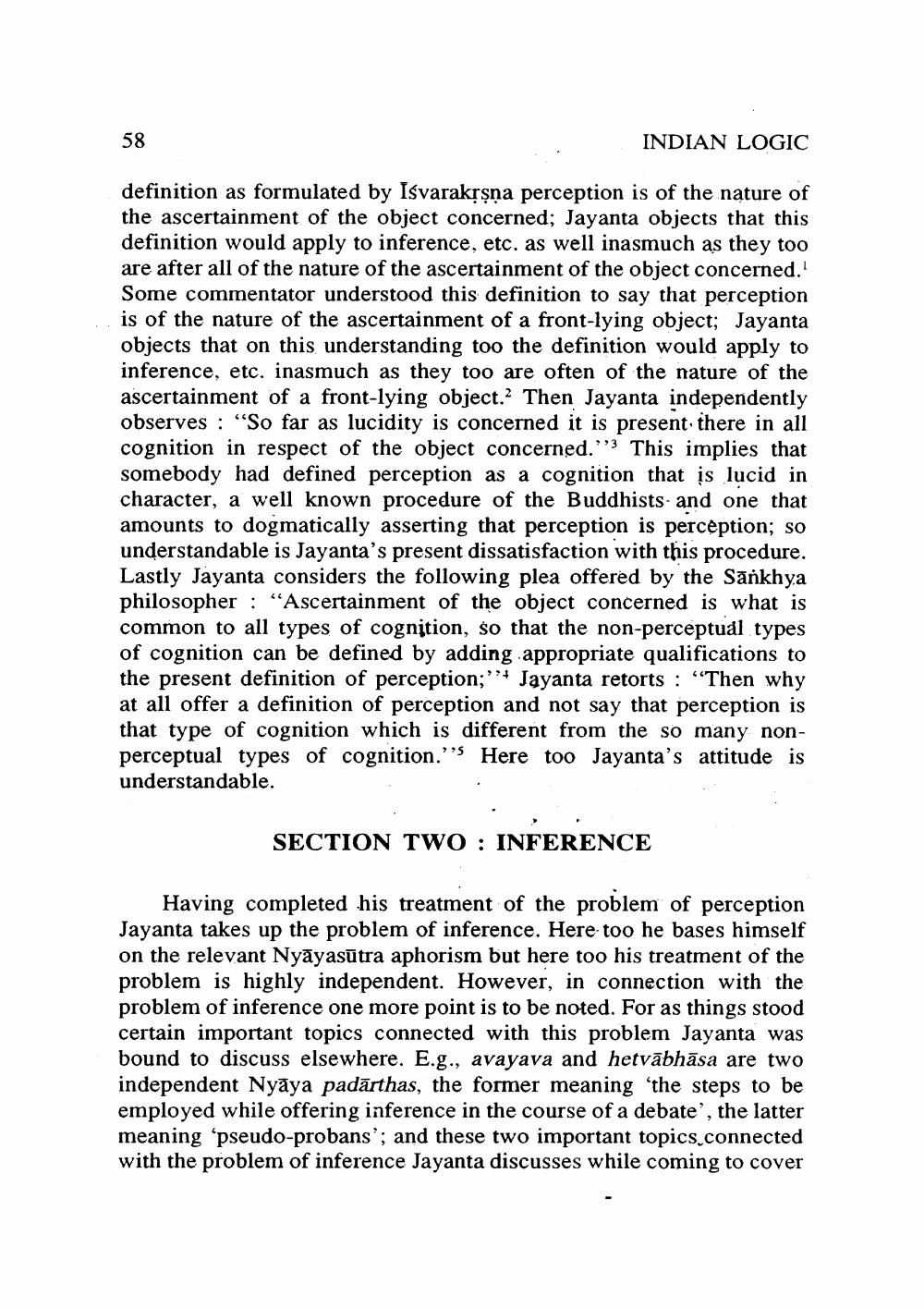________________
58
INDIAN LOGIC
definition as formulated by Isvarakrsna perception is of the nature of the ascertainment of the object concerned; Jayanta objects that this definition would apply to inference, etc. as well inasmuch as they too are after all of the nature of the ascertainment of the object concerned.' Some commentator understood this definition to say that perception is of the nature of the ascertainment of a front-lying object; Jayanta objects that on this understanding too the definition would apply to inference, etc. inasmuch as they too are often of the nature of the ascertainment of a front-lying object. Then Jayanta independently observes : "So far as lucidity is concerned it is present there in all cognition in respect of the object concerned.''3 This implies that somebody had defined perception as a cognition that is lucid in character, a well known procedure of the Buddhists and one that amounts to dogmatically asserting that perception is perception; so understandable is Jayanta's present dissatisfaction with this procedure. Lastly Jayanta considers the following plea offered by the Sankhya philosopher : “Ascertainment of the object concerned is what is common to all types of cognition, so that the non-perceptual types of cognition can be defined by adding appropriate qualifications to the present definition of perception;”?+ Jayanta retorts : “Then why at all offer a definition of perception and not say that perception is that type of cognition which is different from the so many nonperceptual types of cognition.''s Here too Jayanta's attitude is understandable.
SECTION TWO : INFERENCE
Having completed his treatment of the problem of perception Jayanta takes up the problem of inference. Here too he bases himself on the relevant Nyāyasūtra aphorism but here too his treatment of the problem is highly independent. However, in connection with the problem of inference one more point is to be noted. For as things stood certain important topics connected with this problem Jayanta was bound to discuss elsewhere. E.g., avayava and hetvābhāsa are two independent Nyāya padārthas, the former meaning the steps to be employed while offering inference in the course of a debate', the latter meaning 'pseudo-probans'; and these two important topics.connected with the problem of inference Jayanta discusses while coming to cover




